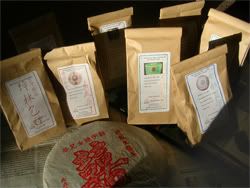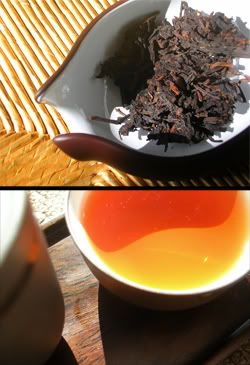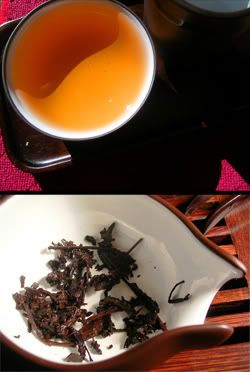 There's something wonderful about Sundays. I remember, as an undergrad, the week-ends didn't really mean that much to me - they were largely similar to the weekdays. Years later, and the week-ends are oases of time, and Sunday is the sweetest of all. This morning, standing in the sunshine as I stepped outside the College after Mass, I looked up and down the road and watched all of the other College doors opening as the Sunday Service in each one finished at about the same time. Our neighbours to the south, Blackfriars, look particularly impressive, being bona fide monks, in full black robes. It's interesting to see Dominican monks rubbing shoulders with a modern city - they look removed from a past time.
There's something wonderful about Sundays. I remember, as an undergrad, the week-ends didn't really mean that much to me - they were largely similar to the weekdays. Years later, and the week-ends are oases of time, and Sunday is the sweetest of all. This morning, standing in the sunshine as I stepped outside the College after Mass, I looked up and down the road and watched all of the other College doors opening as the Sunday Service in each one finished at about the same time. Our neighbours to the south, Blackfriars, look particularly impressive, being bona fide monks, in full black robes. It's interesting to see Dominican monks rubbing shoulders with a modern city - they look removed from a past time.And so, today's tea. Also, removed from a past time, this sample arrived with us courtesy of Houde. Guang notes that the 60s cakes were partially cooked (as with shupu), hence their less exorbitant pricing (though a bing still goes for $1150). Unlike the 70s versions, these leaves are all from Yunnan, as Guangzhou was the sole distributor for 60s cakes under the planned economy of the PRC at the time.
~15cl Caledonian Springs @ 100C in a 35cl shengpu pot, ~5g of leaf, no rinse
 Dry leaves:
Dry leaves:A mixture of truly black leaves with some of a dark chocolate shade. There are some yellow leaves mixed in, which is usually not a good thing, though even these have become dark through the decades. Looking at the photograph, you can see the leaves appear rather primitive and messy, being thoroughly chopped. White dusting and a damp aroma are clear evidence of wet storage. The initial impression is a basso profundo note of rich, old libraries. The compression is fairly loose, and so avoids the extremes of hindered aging through tight compression (c.f. 1980s Xiaguan Zhubao Tuocha), and simple exhaustion of flavour due to lack of compression (c.f. 1960s Gaoligong Maocha).
15s, 10s, 15s, 20s, 25s, 30z, 35s, 60s, 90s, 120s:
Pure, orange soup which darkens to a rich orange with later infusions, but never becomes anything darker - I was half-anticipating something rather burgundy.
The wenxiangbei reveals little in the way of scent, initially, with a long vanilla aroma becoming evident later. The lid-scent is quite "alkaline", and contrasts with the deep, rich plum scent of the leaves - opening the pot reveals an aroma which smells as if a deep pit has just been opened.
The texture of the tea is marvellous, and is the first impression from the pinmingbei: it is so very smooth - everything it touches is coated in a fresh oil.
Now, then, the flavour. Truth be told, this tea isn't particularly special in its flavour. Bear with me through this potential blasphemy, for it seems that this is not the real purpose of this tea. The flavour itself is wonderfully smooth, surely a testament to the decades, but is not captivating in any rich and profound fashion. Yes, it is very appealing, but it is mainly characterised by a long, slow sandalwood taste, with a gentle "bookishness" lingering in the nose. The patience is excellent, as the progression to the throat is gradual and smooth.
The real purpose of this tea seems to be the chaqi. It truly does feel like a tonic, a magical potion, a draught of some rare elixir. It is a qi delivery vehicle (or stimulant, if you define qi as being already present in the body). Even after the first cup, my body was buzzing and swimming. The physiological response is absolutely striking. It's so clear that even Western science should have no problem in detecting it, even if unable to explain it. Putting aside the old debate about qi, and concentrating on what I observe, it's fascinating to see how my body reacts to even the smallest amounts of this substance.
Drinking this tea, it is possible to understand where the interesting theories underpinning Traditional Chinese Medicine might have originated. Shengpu is considered a "cooling" energy - drinking this tea is like taking freshly-plucked mint onto the tongue. There is a distinct and obvious drop in temperature on the surface of the tongue, toothpaste-style.
 After three infusions, I have to pause - my head is giddy and I feel quite tipsy. Putting aside the pot, I head out to the garden for some taijijian [t'ai-chi sword], wondering what the effect of the qi might be on my form.
After three infusions, I have to pause - my head is giddy and I feel quite tipsy. Putting aside the pot, I head out to the garden for some taijijian [t'ai-chi sword], wondering what the effect of the qi might be on my form.This pattern repeated itself until the end of the day, taking three infusions at a time, and then resting for some other activity.
The aroma in the wenxiangbei really came alive in the fourth infusion, being a camphor initial scent, quickly becoming the previous vanilla, and then settling into a long lengxiang of dark, low sugar scents. At the same time, the flavour developed into something more tasty, still sandalwood, with the aroma of dark fruits sitting in the nose. The tea opened like a butterfly.
Wet leaves:
Unremarkable, looking for all the world like a particularly diced shupu, as you can see for yourself.
Overall:
I cannot honestly say that I like this tea for its flavour - even at its peak, after the fourth infusion, it was still just smoothly pleasant, rather than being outrageously delicious. The purpose of this tea seems to be in the qi, which is so pronounced that it feels like some beautiful, harmonious tonic - I initially wrote "narcotic", but narcotics could ever be described as harmonious.
I don't believe that this is worth spending vast sums of money to obtain. I had entertained the idle ambition of buying a bing prior to tasting, but the sample has convinced me otherwise - though the qi really is fascinating, it is not quite satisfying in its flavour, which is largely quiet and familiar, though always smooth. There is some aggravation in the throat, and it feels generally high and a touch simple in its presentation. The price is clearly a function of its rarity, and I believe not in line with its actual merits - good though it is.

12 comments:
I'm especially curious to see what you think of the 1997 Menghai "Shui Lan Yin" 7542. You do a much better of describing tea than I do, so I'm sure I'll gain loads of insight. Oh, and I received the samples from Tea Cuppa. I've already tried one, and I'll be trying another today.
Hi, Dustin - I'll give it the Shui Lan Yin a go next, then.
Great news on the samples!
Toodlepip,
Hobbes
I had to scroll down to click on the "comments" link so as not to read your tasting notes. I have received the 1960's GYG and the 1997 Shuilanyin as well.
About Teacuppa's samples -- seems like parcels to LA takes a while longer to reach. I still haven't receveid them nor have I received MarshalN's sample. Hmmm...
Phyll,
I'm looking forward to reading your opinion of the 60s GYG, and top marks for avoiding my review in the meantime!
Regarding the TeaCuppa samples - they're only just now beginning to arrive in the USA, it seems, so stay tuned!
Super-quick update on the Shuilanyin: yum. More tomorrow.
Toodlepip,
Hobbes
A very interesting description I think.
Interesting to read, and I too think that the whole idea behind Pu-erh, extending as far as good shou, is energy. Oddly enough I noted that in my post today before reading your post! Must be the weather...
-vl.
can not wait for your thoughts on the shuilanyin. I can not say enough good things about it myself. Sweet and approachable, but with the complex 'mineral' characteristics of teas twenty years its senior, (70's GYG, for example).
I just got my cuppa samples yesterday, (east coast), and have made it through the shupus. not shabby.
-Ian, (C.O.B.)
Andrew: That's odd you haven't received either package. I received the Tea Cuppa samples on Friday, and MarshalN's at the beginning of this week, or maybe even the end of last week. I don't get it. We're only 120 miles apart.
Vlad,
I certainly agree with the viewpoint that qi in shengpu is critical (much like a few writers in the last two "Art of Tea" magazines, who immediately spring to mind), but without an interesting flavour and aroma, sensation and huigan?
Well, perhaps "without" is a bit harsh, because this tea is very smooth in all categories, but it's not as well-rounded and truly excellent as I was expecting.
As Guang notes, the 60s GYG is often considered an "affordable" (relatively speaking) old tea because of its partial fermentation. He implies that this reduces its price relative to, what I would consider to be, the more stunning old teas.
This is stunning, but only in its qi. The rest of the tea is merely "very good", not "excellent".
Of course, these conclusions are only based on a single session, and much of our subjective interpretations are open to variations in mood (I was very tired at the time).
Sadly, I only have enough for two sessions in this somewhat pricey tea, and will likely save the second for when Xiaomao is back from China, and perhaps when you and Iwii come to visit in June. :)
Ian,
I can see where the praise for the shuilanyin comes from. I'll post a full review if I get some time before catching my train this morning.
I'm glad to hear that your samples arrived!
Dustin,
Do you ever meet up with the "L.A. Tea Club", or with the Psychopuncture/Davelcorp/Estif wing? So much tea in such a small space!
Toodlepip,
David
David: Nope, I haven't met with the L.A. Tea Club or any other California tea heads. But I'm pretty sure most, if not all of them, will be at the Puerh tasting next month with Guang.
I'm expecting to read great things about that event - it looks like the proverbial recipe for success! Do you think anyone will get tea-drunk and start a brawl?
Toodlepip,
D
Ah, so you felt the intoxicating effect of this tea, too! I have just posted my TN (without peeking at yours). Seemed that we had a similar experience, more or less, with this tea.
It certainly is magical, is it not? The flavour and duration are unexciting, but the chaqi is quite the experience - certainly justifying the cost of the sample (but not that of a bing, for me).
Toodlepip,
Hobbes
Post a Comment